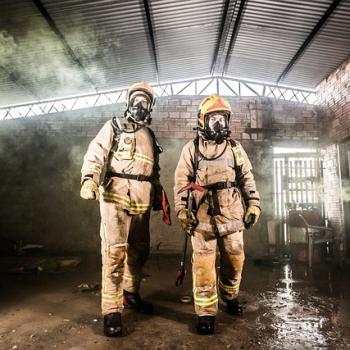If one were to pick an overarching theme in the first year of Francis' pontificate, it could be "go out"—beyond what you are comfortable with, beyond yourself—and help someone in need. He certainly says that in his first World Communications Day message, where he challenges us to look at whether we are using our digital activities for the benefit of our "neighbors."
"Communication at the Service of an Authentic Culture of Encounter" speaks to technology as a gift from God; it urges us to find ways to use our cyber activities and social media for the good our brothers and sisters. The message immediately struck me as rich with questions that could be used for faith sharing groups in schools, parishes, and even in our families.
"Communication is ultimately a human rather than technological achievement," writes the Holy Father. Many of us—whether we dove into technology happily or were reluctantly thrust into it—have begun to realize that we desperately need Christ and humanity at the center of it all.
Pope Francis sees the internet as being filled with "immense possibilities for encounter and solidarity." He challenges us to "boldly become citizens of the digital world" and to not see media as mere "cosmetics or special effects, but rather of our being loving and merciful 'neighbours' to those wounded and left on the side of the road." Loving. Merciful. Wounded on the side of the road. Hardly words you see in the smart phone ads. With all the self display on social media, many people still suffer in silence and do not know about God's love and grace.
Pope Francis's message is only ten paragraphs long, but it raises questions about how to use our technology to spread God's healing. And those questions are ready made for faith sharing. Here are some suggestions for your group discussions and these can be used face-to-face or in groups online. And can even be adapted for younger cohorts.
1)"Those who communicate, in effect, become neighbors. The Good Samaritan not only draws nearer to the man he finds half dead on the side of the road; he takes responsibility for him. Jesus shifts our understanding: it is not just about seeing the other as someone like myself, but of the ability to make myself like the other. Communication is really about realizing that we are all human beings, children of God. I like seeing this power of communication as 'neighborliness.'"
How can we be "neighborly" in our use of the communications media and in the new environment created by digital technology?
2)"Whenever communication is primarily aimed at promoting consumption or manipulating others, we are dealing with a form of violent aggression like that suffered by the man in the parable, who was beaten by robbers and left abandoned on the road. The Levite and the priest do not regard him as a neighbor, but as a stranger to be kept at a distance. In those days, it was rules of ritual purity which conditioned their response. Nowadays there is a danger that certain media so condition our responses that we fail to see our real neighbor."
Are you aware of how you and your children can be conditioned through certain media? What are you doing to safeguard yourself and your loved ones from this "conditioning"?
3) "Media strategies do not ensure beauty, goodness, and truth in communication. The world of media also has to be concerned with humanity; it too is called to show tenderness. The digital world can be an environment rich in humanity; a network not of wires but of people."
When have I used social media for good in my community, church, etc.? Is there something I have created or could create for the internet/social media that promotes beauty, goodness, and truth and an environment rich in humanity?
3)"As I have frequently observed, if a choice has to be made between a bruised Church which goes out to the streets and a Church suffering from self-absorption, I certainly prefer the first. Those 'streets' are the world where people live and where they can be reached, both effectively and affectively. The digital highway is one of them, a street teeming with people who are often hurting, men and women looking for salvation or hope. By means of the internet, the Christian message can reach 'to the ends of the earth.' (Acts 1:8)."
How can I or do I use social media/ the internet to help those who are hurting and looking for salvation and hope?
4)"Keeping the doors of our churches open also means keeping them open in the digital environment so that people, whatever their situation in life, can enter, and so that the Gospel can go out to reach everyone. We are called to show that the Church is the home of all. Are we capable of communicating the image of such a Church? Communication is a means of expressing the missionary vocation of the entire Church; today the social networks are one way to experience this call to discover the beauty of faith, the beauty of encountering Christ. In the area of communications too, we need a Church capable of bringing warmth and of stirring hearts."




